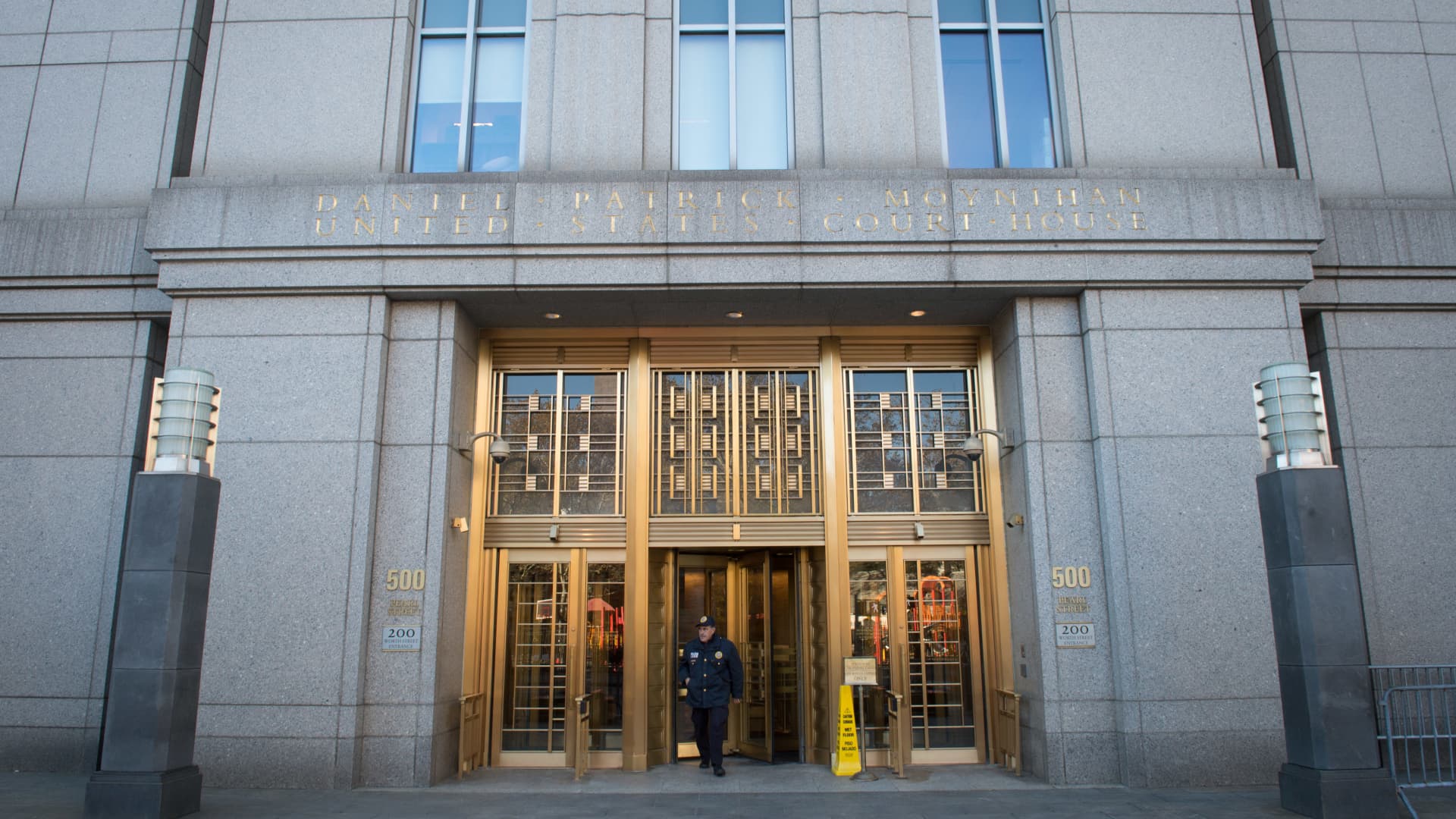A New York woman was sentenced to time already served in jail for cyberstalking in a case where she was accused of “catfishing” a mystery high-profile CEO of a publicly traded corporation.
The woman, Sakoya Blackwood, 35, was charged in a Manhattan federal court indictment with trying to extort the unidentified millionaire out of up to $300,000 to keep her quiet about his sexual escapades, and about a false claim she threatened to make about him having sex with a minor.
Prosecutors have said in a court filing that in addition to that CEO, Blackwood “targeted numerous other potential victims — all wealthy and high-profile men — using fictitious identities, while camouflaging her ownership of the accounts deployed in her catfishing scheme.” She was not charged in connection with those other men.
At her sentencing Wednesday, Blackwood was also ordered to serve three years of supervised release for the attempted shakedown, which spanned six months in 2022. Judge Jesse Furman agreed with recommendations by her lawyers and probation officials.
But because she came to the United States from Jamaica as a child without legal immigration status, Blackwood now faces the risk of being deported and separated from her 12-year-old daughter, her lawyer said in a court filing.
The Manhattan U.S. Attorney’s office had asked Furman to punish the Bronx resident with a “significant term of imprisonment,” which would be between 24 and 30 months given federal sentencing guidelines. An office spokesman did not immediately respond to CNBC’s request for comment.
Blackwood, since her arrest last August, had been held in a Brooklyn jail, after a judge deemed her to be a flight risk.
She pleaded guilty on March 28 to cyberstalking as part of a plea deal that led to the dismissal of the other two criminal counts she faced: extortion and use of interstate communication with intent to extort.
Prosecutors in a court filing said Blackwood tried to extort the victim by threatening to “falsely tell the world” that the man “has sex with a minor.”
That claim was “a blatant lie which she invented out of whole cloth,” the filing noted.
But what was true were sexually explicit photos and messages the CEO shared with Blackwood as she posed in electronic communications as a former romantic partner of the victim.
Blackwood then pretended to be a vengeful ex-boyfriend and employees of media outlets — among them a Vanity Fair reporter — purportedly interested in reporting his conduct.
Such online deception is known as catfishing.
Blackwood also ramped up pressure on the victim in late April 2022 by “using Twitter to tweet veiled threats at the Victim,” prosecutors wrote.
“She tweeted about a scandal brewing around the Victim and rhetorically asked what would happen to the share price and shareholders of the Victim’s company when the compromising information is released,” the filing said.
The man’s identity has never been made public. But court filings describe him as a Harvard-educated CEO of a publicly traded company who is in his late 60s.
“The defendant’s behavior was heartless,” prosecutors wrote.
“For many months, the defendant kept the Victim suffering from the constant fear that his life would be ruined. She taunted him with the prospect of releasing embarrassing materials and, even worse, false accusations that he had sex with someone who was underage,” the filing said.
Prosecutors said Blackwood “employed sophisticated and devious means” for her scheme, which included the creation of “multiple online personas” and the use of a Voice over Internet Protocol phone number.
She also obtained the cellphone numbers of the victim, his son and six members of his company’s board of directors, “threatening to destroy the Victim’s life by disclosing to those close to him her false claims,” prosecutors wrote.
Blackwood’s lawyer, Michael Tremonte, in his sentencing submission July 5, said that after emigrating from Jamaica and earning top grades in high school, Blackwood at age 18 married an older man “who subjected her to extreme physical and mental abuse.”
Tremonte wrote that “Blackwood never fully healed from the trauma,” and that “she continued to experience the effects of PTSD and, like many survivors of domestic violence, continued to engage in unhealthy relationships and rely financially and emotionally on abusive men.”
“It was from this position of fear, vulnerability, and resentment toward her abusers that Ms. Blackwood made the terrible decision to send harassing messages to a millionaire CEO,” wrote the lawyer, who did not immediately respond to CNBC’s request for comment Thursday.
Tremonte wrote that after 10 months in jail and the “dramatic wake-up call” from her arrest, “Ms. Blackwood has absorbed the enormous consequences of her poor decisions and could not be more ashamed.”
Read more of CNBC’s politics coverage:
The defense lawyer wrote that Blackwood struggled emotionally during the Covid-19 pandemic, and after unsuccessfully trying to earn money from day trading, began “compulsively reading on the Internet about powerful men who engage in abusive conduct.”
“She became particularly upset about narratives involving men who sexually took advantage of young
women or abused positions of political, social, or corporate power, and then got away with it,” Tremonte wrote.
Blackwood then began contacting men who were rumored to have been involved in domestic violence, sexual harassment or sexual assault of minors and others, according to her lawyer.






